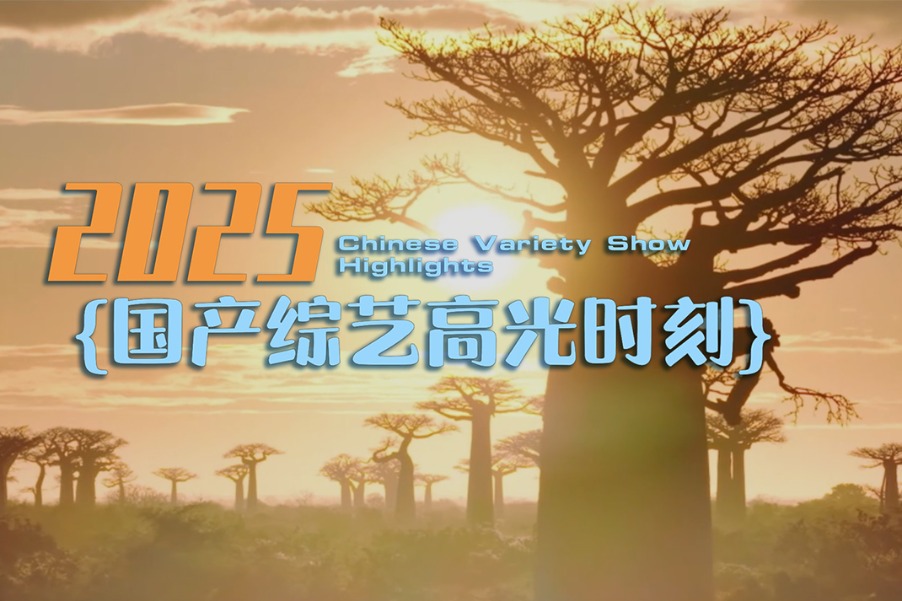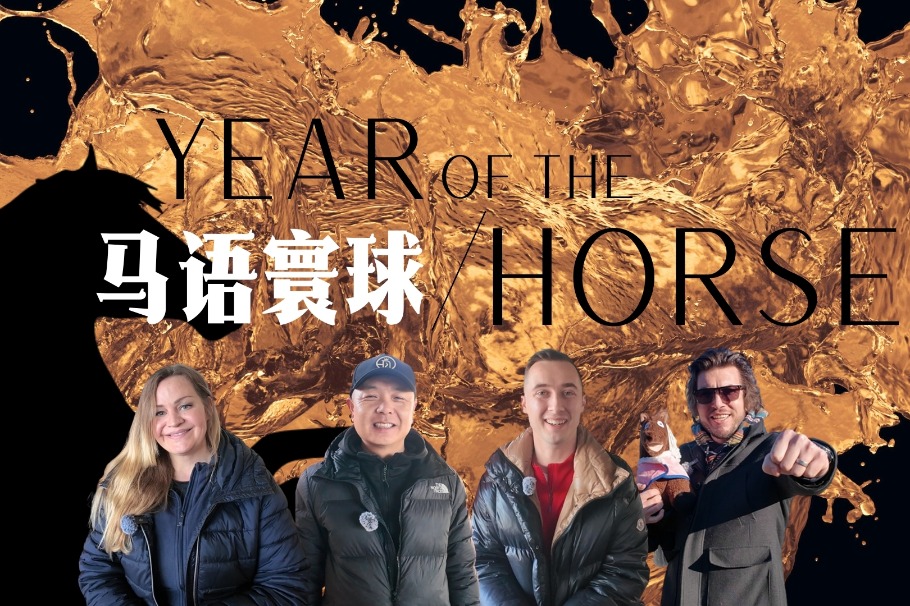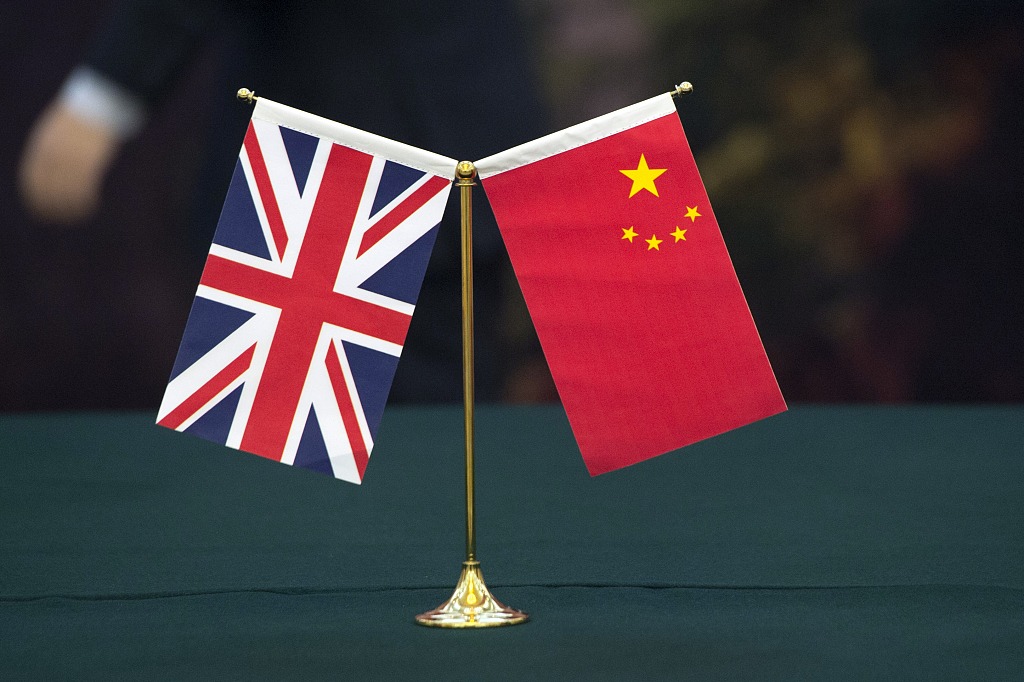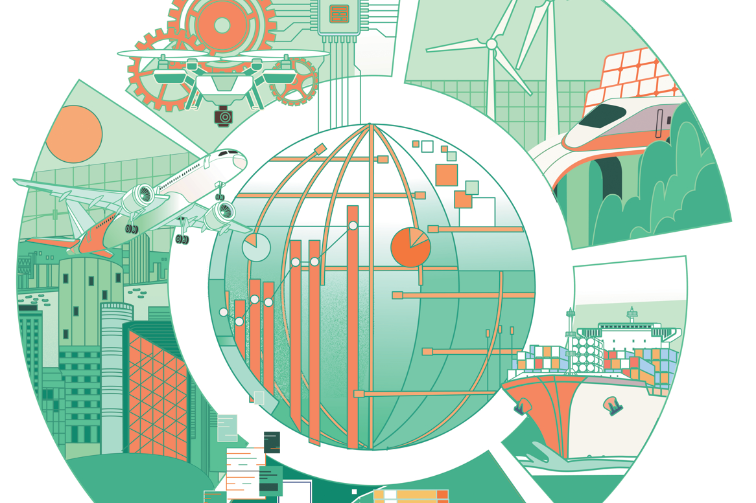Building a community with a promising future

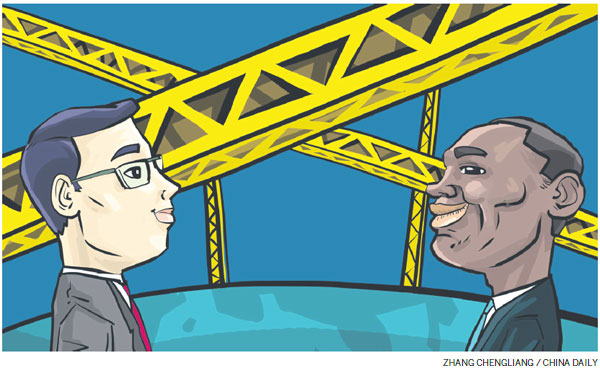
As certain countries continue to champion isolationism and undermine decades-old international relationships, China is rolling out its Belt and Road Initiative, a project that is helping to build a China-Africa community with a shared and promising future.
The Belt and Road Initiative focuses on connection and cooperation between countries, in particular between Eurasian and African countries. Its five pre-eminent objectives are cooperation and development priorities: policy coordination, infrastructure connectivity, free trade, financial integration, and people-to-people connections.
Since the 1950s, China has developed an unusually strong relationship with African countries. As President Xi Jinping has said, "China and Africa remain friends tested by adversity. The profound friendship between China and Africa will remain unbreakable no matter how the world may change or what others may say. As Africa's brother and partner, China will always attach particular importance to the needs and interests of African countries. Africa is an indispensable partner in China's endeavor to build a global community with a shared future."
A more prosperous shared future
With the ongoing visit of President Xi to four African countries-Senegal, Rwanda, South Africa and Mauritius-we have every reason to look forward to a China-Africa community with an even more prosperous shared future.
For Africa, the Belt and Road Initiative is an expressway not only to the Chinese market, but also to the European and Middle Eastern markets. This, together with the promise of Chinese-funded infrastructure, has raised the interest of African countries in the initiative. According to the Chinese government's official plans, the initiative has two African hubs: Kenya and Egypt. But the Chinese-funded rail and communications networks also link other East African countries such as Ethiopia, Tanzania and Rwanda to the Belt and Road. China's inclusion of Africa in the initiative means the continent has a whole new set of opportunities. Many East African governments see Chinese investment in infrastructure and manufacturing as a way to bridge infrastructure gaps and to position their countries as new logistics and manufacturing hubs that can serve not only Africa, but also the Middle East and Europe.
China has become Africa's largest trading partner for nine continuous years and the most important source of investment and tourism. It has helped Africa build more than 6,500 kilometres of railways, over 6,000 kilometres of highways, more than 200 schools, 80 stadiums, dozens of government office buildings, and a large number of airports and ports. All these projects have tremendously contributed to African modernization.
Today, by deepening political mutual trust and pursuing common development through pragmatic and close cooperation in the spirit of South-South cooperation in sectors such as health, education, infrastructure development, trading and capacity building, China and African countries are building a China-Africa community with a shared future.
"China remains an example for us," said Thomas Kwesi Quartey, deputy chair of the African Union Commission. "China has showed that it is possible to pull many millions of people out of poverty."
A report last year by Ernst & Young, the London-based multinational professional services company, shows that China became the single largest contributor of foreign direct investment in Africa in 2016. Between 2005 and 2016, China invested in 293 FDI projects in Africa, with a total investment outlay of $66.4 billion, creating 130,750 jobs.
Data from the African affairs department of China's Ministry of Foreign Affairs show that China-Africa trade grew from a $765 million in 1978 to $170 billion in 2017, an increase of more than 200 times.
On international and regional matters, China and Africa have maintained close coordination. Of the five permanent members of the UN Security Council, China is the largest contributor to UN peacekeeping forces in Africa, with more than 2,000 Chinese troops carrying out missions on the continent.
Belt and Road boosts China-South Africa trade
Some African countries have benefited more from China's Belt and Road Initiative than others. In South Africa, one of the strongest economies in Africa and a signatory to the Belt and Road Initiative, Chinese and South African companies have been cooperating on various infrastructure projects such as roads, railways, ports, power generation, airports and human settlements. The two-way trade totalled $39.17 billion last year, more than 20 times what it was at the start of their diplomatic engagement. Statistics reveal that China's direct investment in South Africa has grown more than 80 times and exceeds $10.2 billion in cumulative terms, creating tens of thousands of jobs for local communities and boosting the South African economy.
President Xi's visit to the country to attend the 10th BRICS summit in Johannesburg, has further enhanced cooperation and trade between the two countries.
The foreign ministers of China and Mauritius have exchanged visits and reached consensus on promoting the Belt and Road Initiative. The two countries are both firm supporters of globalization, and share the aim of building a world of common prosperity. Mauritius ranks first among African countries in terms of competitiveness and development level and it enjoys social stability, a comprehensive legal system, sound infrastructure, and high quality human resources. The two countries have started negotiations on a free trade agreement that, once signed, will be the first between China and an African country, which would mark a new milestone for the development of Sino-African relations.
In Kenya, China has financed and built a standard gauge railway linking Mombasa and Nairobi, and future extensions will connect to an existent Chinese-built line between Ethiopia's capital of Addis Ababa and Djibouti, as well as to other countries in the region. Eventually this rail network could link countries as distant as Rwanda, Uganda and Djibouti to Kenya's harbors, and therefore to both China and Europe, via the Belt and Road routes. Once a country devastated by civil wars fuelled by outside interests, today Mozambique has discovered offshore natural gas. Though Mozambique is not officially a Belt and Road country, it is in an advantageous position to sell natural gas to China. The benefits to Mozambique here seem to be a net positive.
In Rwanda, China's contributions are remarkable, including government office complexes for key ministries, roads, rural electrification using solar power, hospital upgrading, and expansion of agricultural training for Rwandans.
In Senegal, the first stop on President Xi's visit to Africa, he stressed that China through the Belt and Road Initiative and the platform of the Forum on China-Africa Cooperation, will work with Senegal to tap their respective strengths in the trade and processing of agricultural and aquatic products. China-Senegal ties have seen sound and stable development since the restoration of diplomatic ties in 2005. The relationship was elevated to a comprehensive strategic cooperative partnership in 2016. China is now Senegal's second-largest trading partner and largest source of financing.
Based on the existing solid foundation of cooperation, to fully exploit the enormous potential of the Belt and Road Initiative in constructing the China-Africa community with a shared future, China and Africa should make further joint efforts to address several urgent concerns.
In conversations with ordinary Africans, one frequently encounters the assumption that it is only the elites who benefit from deals with Chinese companies. To erase such perceptions from the minds of ordinary Africans, China should do more to ensure that more people benefit from the Belt and Road Initiative.
Initiative has made remarkable achievements
Although there are still challenges to overcome in the years ahead, the remarkable achievements China has made in the name of the Belt and Road Initiative so far are highly convincing evidence that the China-Africa community with a shared future has a promising prospect.
The FOCAC summit scheduled for September this year will bring together Chinese and African leaders. It can usher in a new era for China-Africa cooperation by advancing the building of a China-Africa community with a shared future. By aligning the Belt and Road Initiative with the UN's 2030 Agenda, the African Union's Agenda 2063 and the development strategies of individual African countries, China-Africa cooperation will soar to greater heights, giving wings to world peace and socioeconomic development.
Sun Youzhong is a professor at Beijing Foreign Studies University, and Edmond Moukala is head of the Africa Unit at the World Heritage Centre of UNESCO.


















